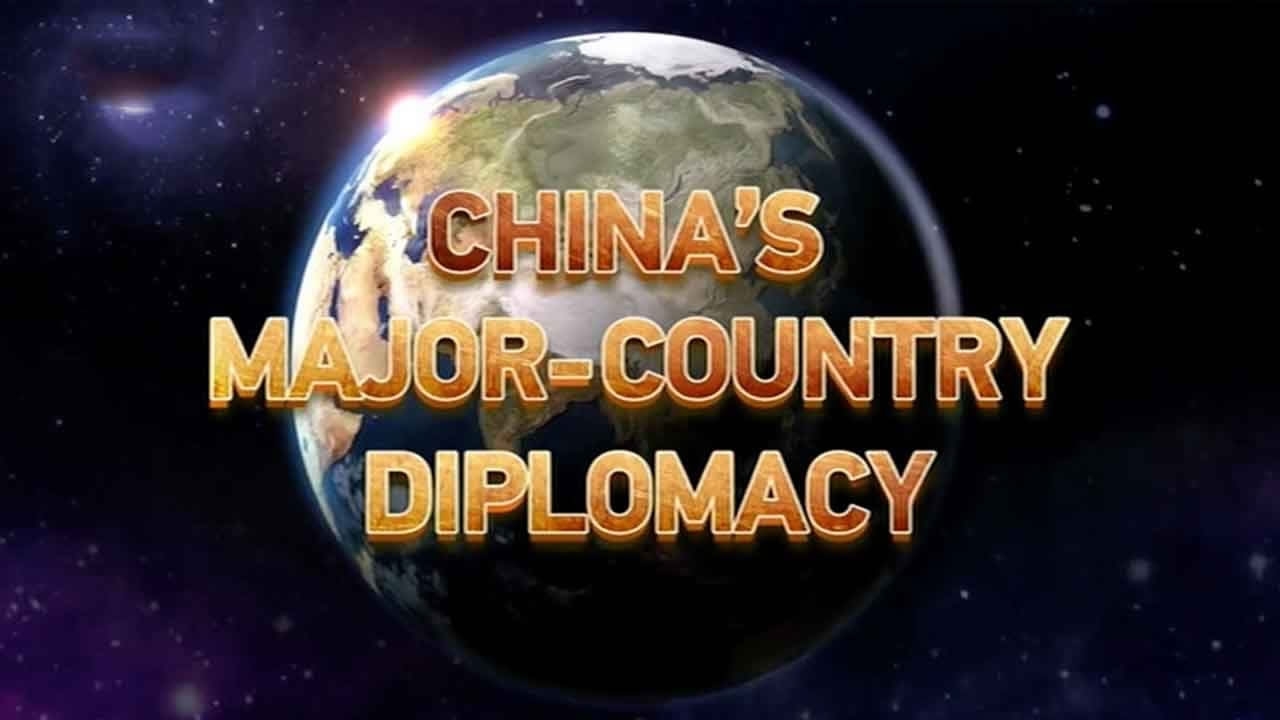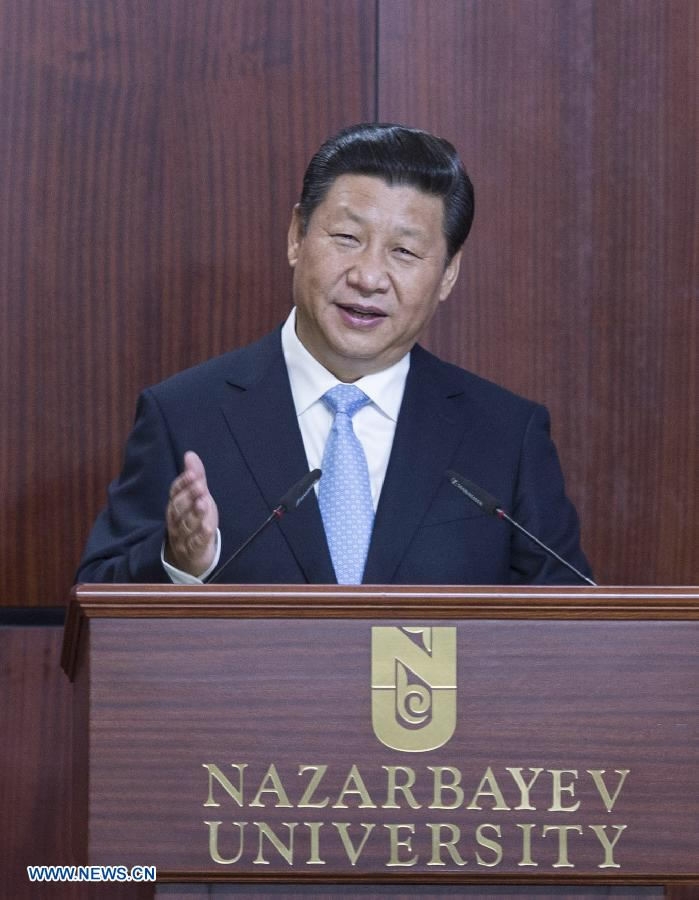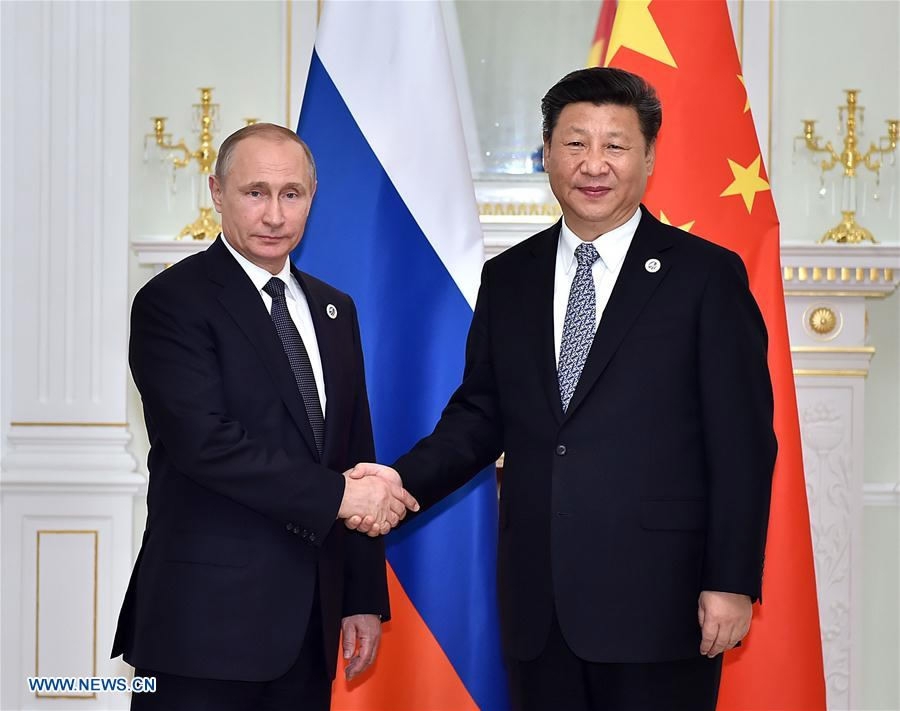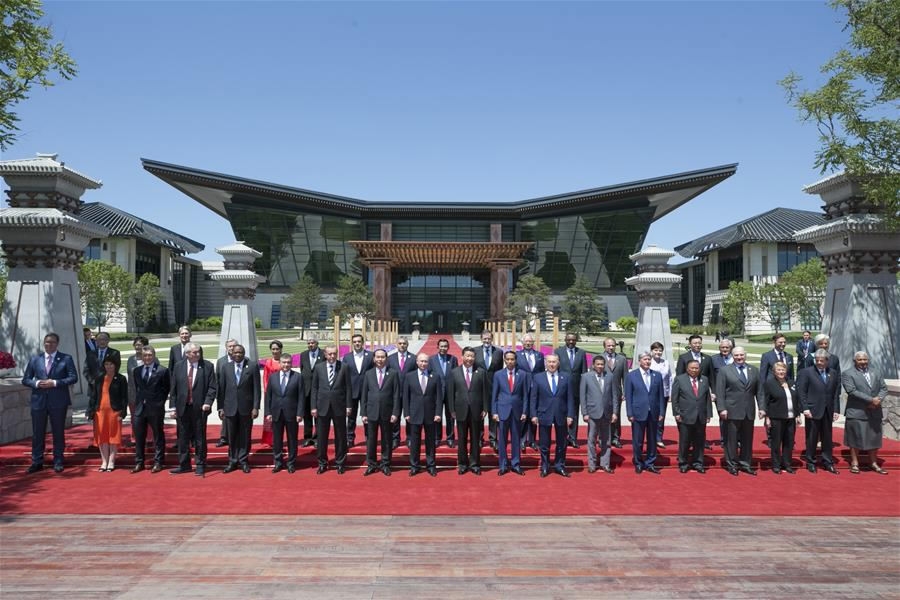
Politics
15:16, 02-Sep-2017
China's Belt and Road Initiative aims to achieve shared progress
CGTN

The China-proposed Belt and Road Initiative is a project aimed to strengthen interconnectivity in the areas of policy, infrastructure, trade, finance and non-governmental exchanges with the goal of bringing benefits to all.
As part of China’s all-round opening to the outside world, One Belt One Road is a major new initiative, promoting reform through opening-up and development in the same way.
It overcomes the boundaries of time and space, linking past and present.
In 2013, President Xi proposed that China and Central Asia join hands to build a Silk Road Economic Belt to boost cooperation in a speech delivered at Nazarbayev University, in Astana, Kazakhstan.

Chinese President Xi Jinping delivers a speech at the Nazarbayev University in Astana, Kazakhstan, Sept. 7, 2013. /Xinhua Photo
Chinese President Xi Jinping delivers a speech at the Nazarbayev University in Astana, Kazakhstan, Sept. 7, 2013. /Xinhua Photo
"We can adopt an innovative model of cooperation to jointly build a Silk Road Economic Belt," Xi said.
He later reinforced this idea, saying "China is willing to strengthen maritime cooperation with the ASEAN countries and jointly develop a Maritime Silk Road of the 21st century," at Indonesian House of Representatives in Jakarta.
Throughout the phases of initiation, planning and execution, President Xi has been closely involved, domestically and internationally, in the work of promoting the Belt and Road Initiative.
Russian President Vladimir Putin publicly backed China's Belt and Road Initiative. He said, "Everyone agrees to cooperate with China in the framework of the Silk Road Economic Belt proposed by President Xi Jinping."

Chinese President Xi Jinping (R) meets with Russian President Vladimir Putin in Tashkent, Uzbekistan, June 23, 2016. /Xinhua Photo
Chinese President Xi Jinping (R) meets with Russian President Vladimir Putin in Tashkent, Uzbekistan, June 23, 2016. /Xinhua Photo
On January 18, 2017, Xi promoted this initiative in his keynote speech at the UN Office in Geneva. "The Belt and Road Initiative I put forward aims to achieve win-win and shared development," he said.
At this speech, he also announced China's plans to host a Belt and Road forum for international cooperation in Beijing to brainstorm on interconnected development as part of China's efforts to make globalization more inclusive and beneficial to all.
Six economic corridors
China is also pushing forward six economic corridors in the framework of the Belt and Road Initiative, namely, New Eurasian Continental Bridge, China-Mongolia-Russia Economic Corridor, China-Central Asia-West Asia Economic Corridor, China-Pakistan Economic Corridor, China-Indochina Peninsula Economic Corridor, Bangladesh-China-India-Myanmar Economic Corridor; to form a trade and transport network serving Asia, Africa and Europe.
They constitute a solid foundation for regional and trans-regional development, just as what Xi said, "Communication and interconnectivity in the areas of policy, infrastructure, trade, finance and non-governmental exchanges should go hand in hand."

Chinese President Xi Jinping, foreign delegation heads and guests pose for a group photo at the Leaders' Roundtable Summit of the Belt and Road Forum for International Cooperation at Yanqi Lake International Convention Center in Beijing, May 15, 2017. /Xinhua Photo
Chinese President Xi Jinping, foreign delegation heads and guests pose for a group photo at the Leaders' Roundtable Summit of the Belt and Road Forum for International Cooperation at Yanqi Lake International Convention Center in Beijing, May 15, 2017. /Xinhua Photo
The Belt and Road Initiative, by evoking memories of the once-prosperous Silk Road, is generating fresh momentum for achieving collective economic development.
Ultimate goal
Ultimately, it is ordinary people who will benefit from the Belt and Road.
Khemmani Pholsena, Laotian Minister of Industry and Commerce, said: "I always remember President Xi’s words: 'The common people's pursuit of a better life is what spurs us on'."
On Nov. 17, 2016, the UN incorporated the Belt and Road Initiative in a General Assembly resolution. This demonstrated the international community's support for the Initiative. Within three months, the Chinese concept of building a community of shared future for mankind was included in several related UN resolutions.
In May 2017, Beijing welcomed guests from around the world, who came to participate in the Belt and Road Forum for International Cooperation. In a speech, President Xi proposed, in building the Belt and Road, several key principles should be observed: Peace, prosperity, openness, innovation, and civilization.
The world is one family. The Belt and Road Initiative is promoting the dream of building a community of shared future for mankind. The prospects it holds out, of peaceful development and win-win cooperation, promise a more prosperous future for China and the world.
Previous episodes:

SITEMAP
Copyright © 2018 CGTN. Beijing ICP prepared NO.16065310-3
Copyright © 2018 CGTN. Beijing ICP prepared NO.16065310-3